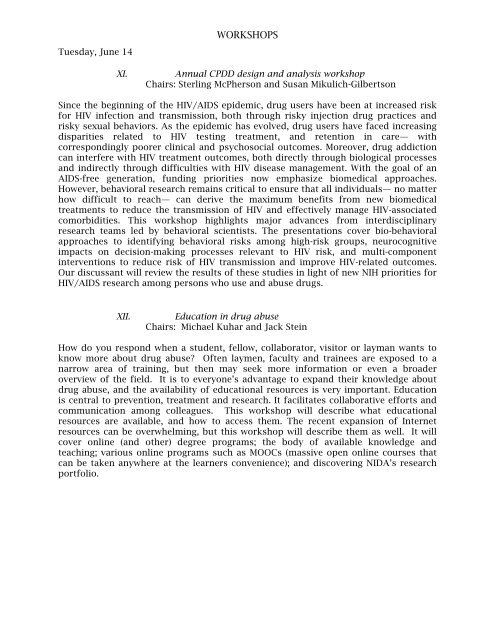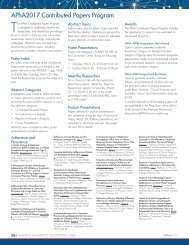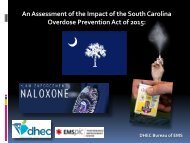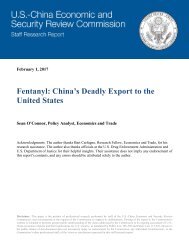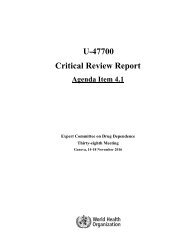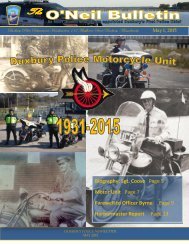CPDD 78th Annual Scientific Meeting Program
2016-78th-CPDD-Program-Book-6-07-16FINAL
2016-78th-CPDD-Program-Book-6-07-16FINAL
You also want an ePaper? Increase the reach of your titles
YUMPU automatically turns print PDFs into web optimized ePapers that Google loves.
WORKSHOPS<br />
Tuesday, June 14<br />
XI.<br />
<strong>Annual</strong> <strong>CPDD</strong> design and analysis workshop<br />
Chairs: Sterling McPherson and Susan Mikulich-Gilbertson<br />
Since the beginning of the HIV/AIDS epidemic, drug users have been at increased risk<br />
for HIV infection and transmission, both through risky injection drug practices and<br />
risky sexual behaviors. As the epidemic has evolved, drug users have faced increasing<br />
disparities related to HIV testing treatment, and retention in care— with<br />
correspondingly poorer clinical and psychosocial outcomes. Moreover, drug addiction<br />
can interfere with HIV treatment outcomes, both directly through biological processes<br />
and indirectly through difficulties with HIV disease management. With the goal of an<br />
AIDS-free generation, funding priorities now emphasize biomedical approaches.<br />
However, behavioral research remains critical to ensure that all individuals— no matter<br />
how difficult to reach— can derive the maximum benefits from new biomedical<br />
treatments to reduce the transmission of HIV and effectively manage HIV-associated<br />
comorbidities. This workshop highlights major advances from interdisciplinary<br />
research teams led by behavioral scientists. The presentations cover bio-behavioral<br />
approaches to identifying behavioral risks among high-risk groups, neurocognitive<br />
impacts on decision-making processes relevant to HIV risk, and multi-component<br />
interventions to reduce risk of HIV transmission and improve HIV-related outcomes.<br />
Our discussant will review the results of these studies in light of new NIH priorities for<br />
HIV/AIDS research among persons who use and abuse drugs.<br />
XII.<br />
Education in drug abuse<br />
Chairs: Michael Kuhar and Jack Stein<br />
How do you respond when a student, fellow, collaborator, visitor or layman wants to<br />
know more about drug abuse? Often laymen, faculty and trainees are exposed to a<br />
narrow area of training, but then may seek more information or even a broader<br />
overview of the field. It is to everyone’s advantage to expand their knowledge about<br />
drug abuse, and the availability of educational resources is very important. Education<br />
is central to prevention, treatment and research. It facilitates collaborative efforts and<br />
communication among colleagues. This workshop will describe what educational<br />
resources are available, and how to access them. The recent expansion of Internet<br />
resources can be overwhelming, but this workshop will describe them as well. It will<br />
cover online (and other) degree programs; the body of available knowledge and<br />
teaching; various online programs such as MOOCs (massive open online courses that<br />
can be taken anywhere at the learners convenience); and discovering NIDA’s research<br />
portfolio.


